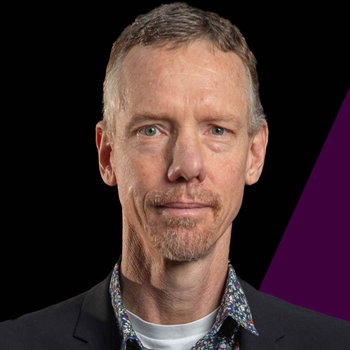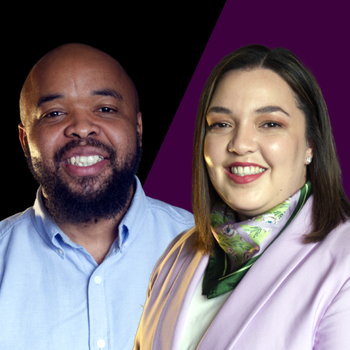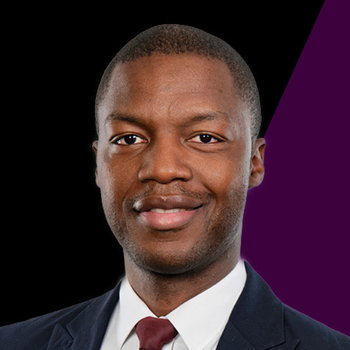
Stay focused to filter out cybersecurity threats
Loading player...
If you are worried about the threat of social engineering and the ways cybercriminals are looking to attack our most vulnerable assets, then this TCS+ conversation is not going to bring you much comfort. What it will do, though, is remind you that you are responsible for your actions and your inactions.
TCS+ welcomed Anna Collard back into the TechCentral studio to hear more about mindfulness and some of the techniques and tools we can apply to bring our emotional and physical selves into a more focused state.
Collard is senior vice president of content strategy and evangelist at KnowBe4 Africa and has a realistic perspective of the cybersecurity landscape. She promotes knowledge sharing and skills transfer while also sharing practical insights into cybersecurity and how susceptible we are to social engineering tricks if we are not mindful.
Given the complexity of generative AI and the interdisciplinary nature of AI research, the tech giants (Amazon, Microsoft, Apple and Meta, for example) are likely to form more partnerships with academic institutions, research organisations and brands, agencies and other companies that may not have well-considered regulations. This is all happening while AI technologies are becoming more powerful and widespread and Collard hints at the growing concern around the ethical and societal implications of AI.
This is where critical thinking comes into play. Collard suggests that it is everyone's responsibility to pause, reflect on their gut feel and question anything that may be at all suspicious. It is our responsibility to seek advice and sound the alarm if necessary.
She encourages companies to invest more in developing guidelines, tools and procedures to ensure the responsible use of AI and to encourage awareness and vigilance. This includes being transparent about your use of AI, your decision-making methods, how to mitigate against bias, enhance privacy protection and much more.
The goal is to keep the mind active and employ very specific decision-making when confronted by potential phishing e-mails or cyber threats,” said Collard. “Cybercriminals, as well as fake news, use emotionally triggering content such as fear, greed or curiosity to trick us out of critical thinking. If we learn to use our heightened emotions as early warning signs, applying mindfulness techniques to quieten down and pay attention before we react, we can remain in control, focus better and in turn prevent cyberattacks.”
Security training is essential for modern business, particularly when it comes to giving employees the tools they need to recognise threats and make informed decisions. However, as the world moves through the fallout from the pandemic, global uncertainty and ongoing stress, adding a wellness dimension to security training is fast becoming a critical factor in ensuring that the training kicks in when tiredness takes over.
In South Africa, there are multiple external factors also contributing to the burnout and stress cycle of cyberattacks on the workplace and in our personal lives. A timely example is that of load shedding, which has reached a critical level and has put immense pressure on people to perform fast and within tight windows of opportunity.
It has also damaged systems, introduced technology quirks and left people frantically clicking to get working. This scenario introduces vulnerabilities such as poor awareness and heightened stress levels that may very easily be taken advantage of by hackers.
TCS+ welcomed Anna Collard back into the TechCentral studio to hear more about mindfulness and some of the techniques and tools we can apply to bring our emotional and physical selves into a more focused state.
Collard is senior vice president of content strategy and evangelist at KnowBe4 Africa and has a realistic perspective of the cybersecurity landscape. She promotes knowledge sharing and skills transfer while also sharing practical insights into cybersecurity and how susceptible we are to social engineering tricks if we are not mindful.
Given the complexity of generative AI and the interdisciplinary nature of AI research, the tech giants (Amazon, Microsoft, Apple and Meta, for example) are likely to form more partnerships with academic institutions, research organisations and brands, agencies and other companies that may not have well-considered regulations. This is all happening while AI technologies are becoming more powerful and widespread and Collard hints at the growing concern around the ethical and societal implications of AI.
This is where critical thinking comes into play. Collard suggests that it is everyone's responsibility to pause, reflect on their gut feel and question anything that may be at all suspicious. It is our responsibility to seek advice and sound the alarm if necessary.
She encourages companies to invest more in developing guidelines, tools and procedures to ensure the responsible use of AI and to encourage awareness and vigilance. This includes being transparent about your use of AI, your decision-making methods, how to mitigate against bias, enhance privacy protection and much more.
The goal is to keep the mind active and employ very specific decision-making when confronted by potential phishing e-mails or cyber threats,” said Collard. “Cybercriminals, as well as fake news, use emotionally triggering content such as fear, greed or curiosity to trick us out of critical thinking. If we learn to use our heightened emotions as early warning signs, applying mindfulness techniques to quieten down and pay attention before we react, we can remain in control, focus better and in turn prevent cyberattacks.”
Security training is essential for modern business, particularly when it comes to giving employees the tools they need to recognise threats and make informed decisions. However, as the world moves through the fallout from the pandemic, global uncertainty and ongoing stress, adding a wellness dimension to security training is fast becoming a critical factor in ensuring that the training kicks in when tiredness takes over.
In South Africa, there are multiple external factors also contributing to the burnout and stress cycle of cyberattacks on the workplace and in our personal lives. A timely example is that of load shedding, which has reached a critical level and has put immense pressure on people to perform fast and within tight windows of opportunity.
It has also damaged systems, introduced technology quirks and left people frantically clicking to get working. This scenario introduces vulnerabilities such as poor awareness and heightened stress levels that may very easily be taken advantage of by hackers.





